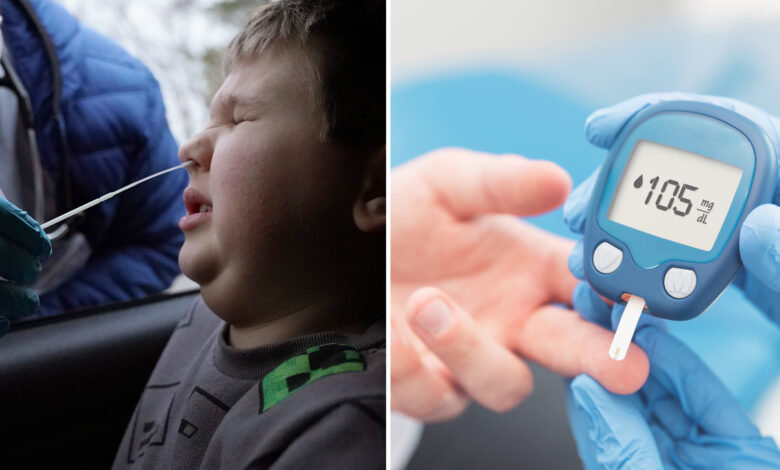Children and teens who have contracted COVID are more prone to diabetes: study

Children and teenagers who have been infected with strands of the coronavirus are more likely to develop Type 2 diabetes than those afflicted by other respiratory illnesses, according to a new research study published on Monday.
Children were 50% more likely to be diagnosed with diabetes around six months after contracting the coronavirus infection compared to those impacted by other respiratory illnesses like seasonal influenza bronchitis, according to the JAMA Network Open study.
The chances only skyrocketed for obese children, who clocked in at a staggering 100% greater likelihood compared to their peers.
Researchers employed health records of more than 60,000 children aged 10 to 19 from January 2020 –prior to the coronavirus being declared a pandemic — to December 2022.
The subjects’ records were categorized into two groups — one with those who tested positive for the coronavirus, and another for those who contracted all other respiratory illnesses. From there, all correlations with positive diabetes diagnoses were noted and studied.
Some of the health records came from before the coronavirus vaccines were made available to children, since the shots were not approved by the Food and Drug Administration for those aged 5 to 11 until October 2021. The research does not note if the subjects received the vaccines or not.
The onset of diabetes could also be attributed to other impacts from the pandemic lockdown, like decreased physical activity or lack of immunity, Steven M. Willi, director of the diabetes center at Children’s Hospital of Philadelphia, told the Washington Post.
Willi was not involved in the study and believes that the concluded correlations between coronavirus and Type 2 diabetes still require further investigation.
Coronavirus is also not the only respiratory illness with the potential to trigger other autoimmune diseases.
The Epstein-Barr virus, more commonly known as mononucleosis or “the kissing disease,” has been linked to conditions like lupus and rheumatoid arthritis.
Bronchiectasis is known to trigger similar autoimmune diseases as well, including Sjogren’s syndrome and relapsing polychondritis.
Anandita Pal, a Houston pediatrician, told the Washington Post that while the study is significant, parents shouldn’t automatically assume that their child will develop diabetes because they have contracted the coronavirus.
“Autoimmune conditions are based on each person’s genetics and their environment and all the other variables,” Pal said.




